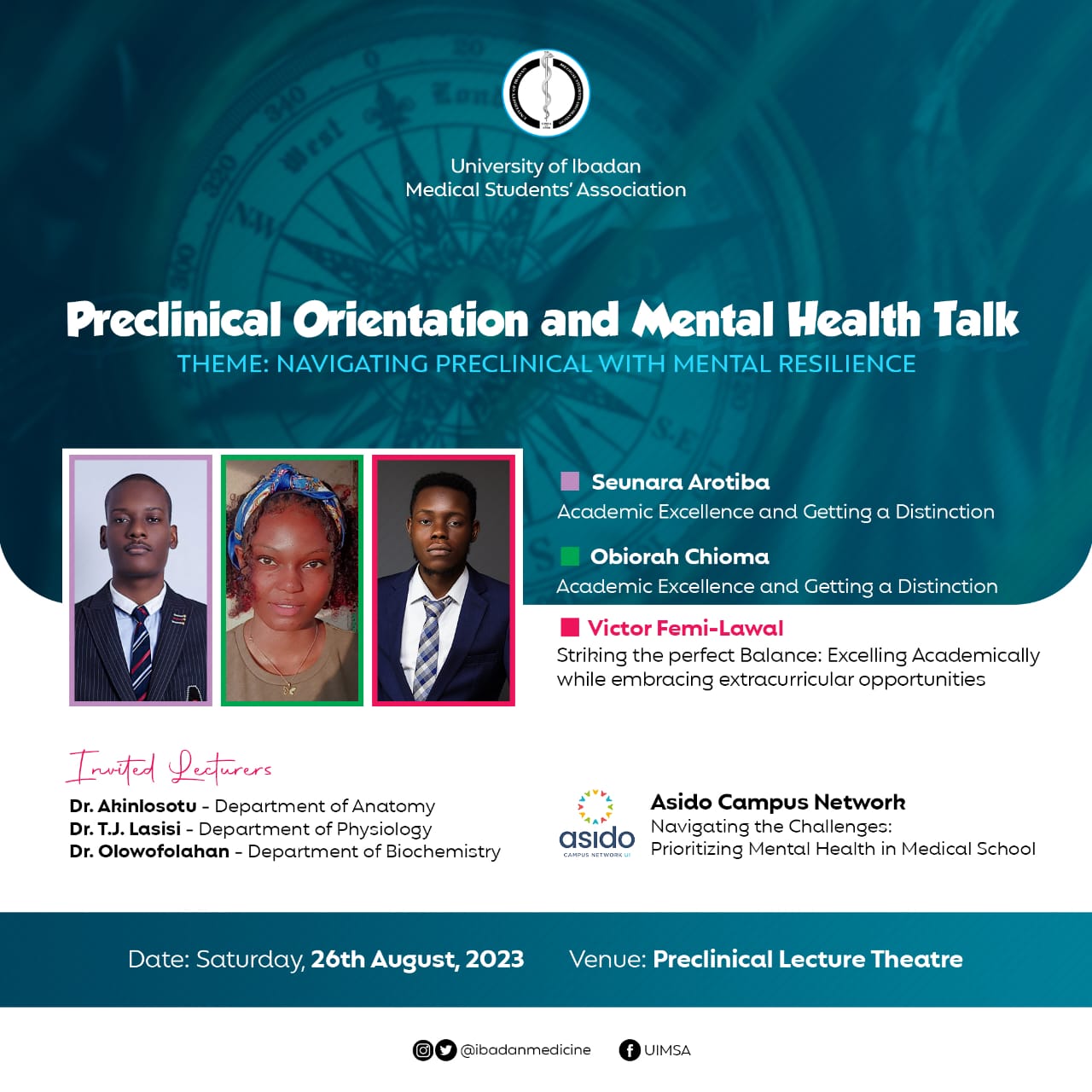Medical Exams and Mental Health

It is that season again. The tension is thick enough to cut as UIMSAites across the 100-level and 500-level classes face the heat of exams while the 600-level class prepares ardently for their finals. In the typical vein of most medical students, anxiety levels peak and health tends to suffer, both physically and mentally.
Research has shown a direct link between mental overworking and reduced cognition, concentration and recall. Exam stress is also known to magnify preexisting anxiety, insomnia and impulsive behaviours.
Despite the dubiousness surrounding the efficacy of the examination method as a true test of knowledge, it, unfortunately, remains the established means of student assessment for the country’s educational system now and in the foreseeable future. As such, each student must develop a self-preservation regimen to safeguard their mental health. Some tips are included below:
The first obvious step to managing exam stress is to identify it. Some hallmark symptoms of exam-related mental burnout are increase or decrease in appetite, moodiness, change in sleep patterns, indecisiveness, lack of restfulness even on waking from sleep, sore muscles, stomach aches, mood swings, lack of motivation and pleasure in hobbies and previously enjoyable activities. Symptoms may present similarly to generalized anxiety disorder or even depression.
When undertaking or preparing for exams the importance of sleep cannot be over-emphasized. While many know this they tend to ignore it while the truth remains that the human brain cannot function without proper sleep. Rest of 6-8 hours the week before a major exam is recommended. It is equally important to maintain the same sleep schedule and avoid oversleeping.
A healthy diet is mandatory for sound mental health. Asides from the energy and immune benefits, certain nutrients have been found to improve cognition and reduce negative stress effects. Vitamin C containing foods (tomatoes, citrus) have been found to reduce anxiety, and vitamin B (eggs) and omega-3 (fish, nuts, banana) containing foods help to quell depression and irritability. A simple glass of water can go a long way in alleviating fatigue and exhaustion. In the same vein, loading on caffeine is a temporary boost that proves detrimental in the long run as chronic caffeine use leads to cardiac problems and hypertension.
Likewise, the benefits of movement and physical activity should not be overlooked. Simple posture changes are effective in improving circulation and concentration during prolonged periods of study.
The assistance of a study partner or study group should also not be overlooked as it is beneficial in improving productivity and motivation.
Lastly, research has proven that for maximally effective cognition the brain demands intermittent resting periods. The Pomodoro Technique comprises 25 minutes of focused study with purposeful 5-minute breaks. It is a highly effective method that enhances concentration and memory, however, it is advisable that the rest interval is not spent on social media so as not to overshoot the time.
The season is no doubt a tough one, but a UIMSAite is tougher. To the classes on the hot seat, we wish you a hearty hurrah at the end of the road.
Opeolu Oreoluwa


